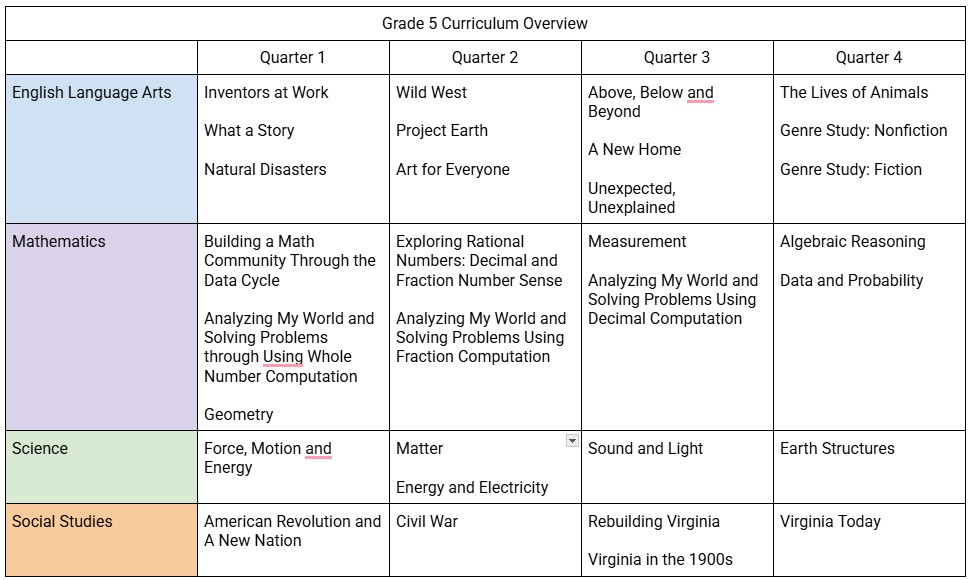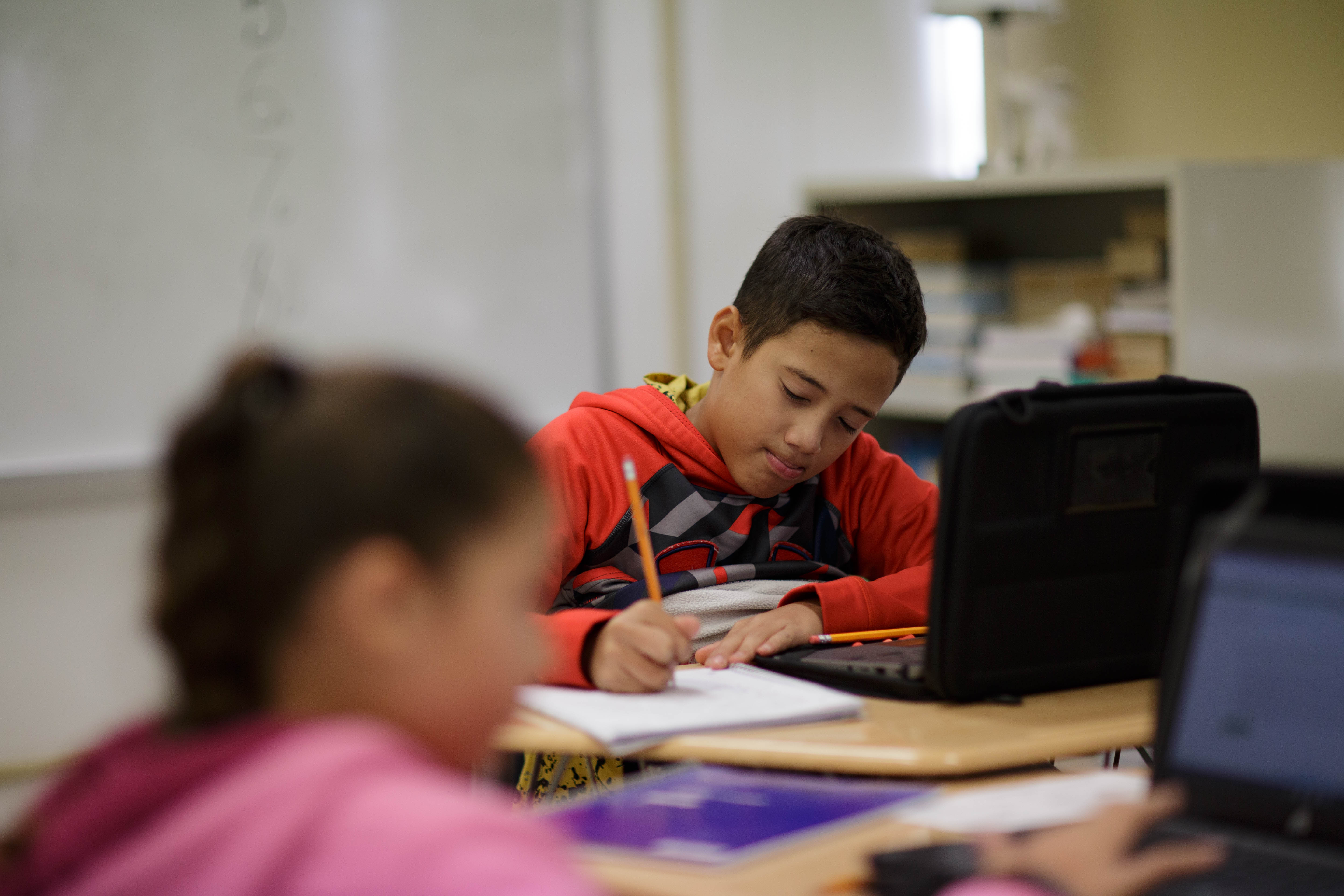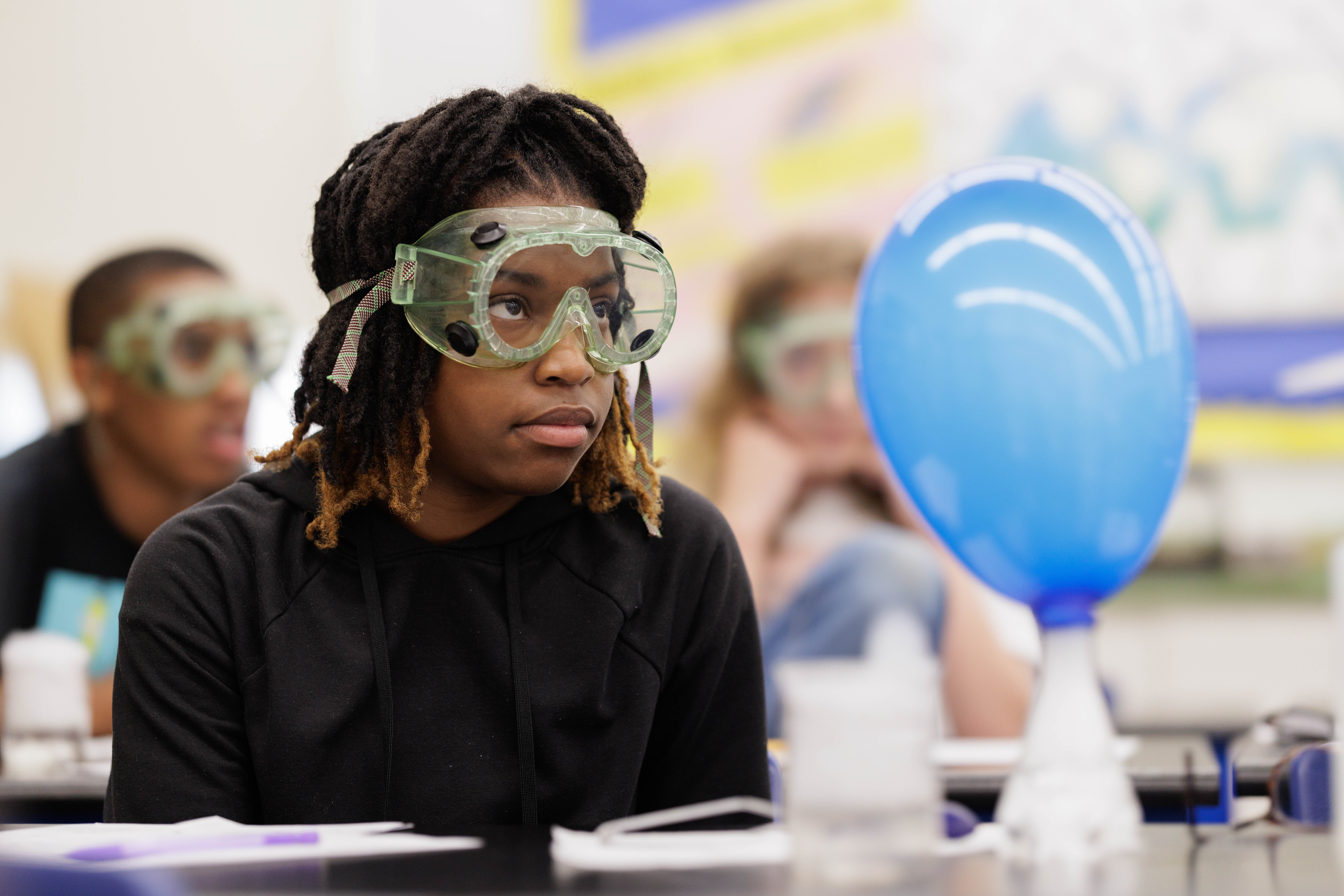
Language Arts
The fifth grade language arts program focuses on the broad areas of communication, reading, writing and research. Students will be introduced to a wide variety of fiction and nonfiction literature which will serve as a basis for instruction and practice in phonics, vocabulary, comprehension, fluency, and writing.
Communication and Multimodal Literacies
- Uses effective oral communication skills
- Creates and delivers multimodal, interactive presentations
- Learns how media messages are constructed and for what purposes
Reading
- Expands vocabulary when reading
- Reads and demonstrates comprehension of fictional texts, literary nonfiction and poetry
- Reads and demonstrates comprehension of nonfiction texts
Writing and Research
- Writes in a variety of forms
- Edits writing for capitalization, spelling punctuation, sentence structure, paragraphing, and Standard English
- Finds, evaluates, and selects appropriate resources to create a research product
Click here for a detailed storyboard for Grade 5 English Language Arts
Click here for more information about the Virginia Standards of Learning for Grade 5 Language Arts

Mathematics
The Grade 5 Standards emphasize solving problems, including those in context, with whole numbers, fractions, and decimals. Students will develop an understanding of prime and composite numbers, determine the prime factorization of a whole number up to 100, and solve problems using the order of operations. Students will also solve problems involving area, perimeter, and volume. Students will determine the probability of an outcome by constructing a model of a sample space and using the Fundamental (Basic) Counting Principle. Students will engage with the data cycle using line plots and stem-and-leaf plots. The data cycle includes formulating questions to be explored with data; collecting or acquiring data; organizing and representing data; and analyzing data and communicating results. Students will be introduced to expressions with a variable to support the development of the algebraic concepts necessary for success in the middle grades.
Numeration and Computation
- Understand the ways of representing whole numbers and rational numbers and the relationships that exist among these numbers and number systems
- Understand the meanings of addition, subtraction, multiplication, and division and compute using whole numbers and rational numbers
Geometry and Measurement
- Understand measurable attributes of objects and events, units of measure, and systems of measurement, and apply appropriate techniques and tools to determine measurements
- Classify and measure angles and triangles
Probability and Statistics
- Create questions and construct answers by collecting, organizing, and displaying data
- Select and use appropriate statistical methods to analyze data
- Understand and apply basic concepts of probability
Patterns, Functions, and Algebra
- Understand a variety of patterns, relations and functions
- Represent and analyze mathematical situations and structures using algebraic symbols
Click here for a detailed storyboard for Grade 5 Mathematics
Click here for more information about the Virginia Standards of Learning for Grade 5 Mathematics

Science
The fifth-grade science program stresses the refinement and application of the science and engineering practices as students investigate and begin to understand how matter and energy can be transformed.
Force, Motion, and Energy
- Understand that energy can take many forms, cause change, do work, and can be transformed and conserved
- Explain the relationship among motion, mass, friction, speed, direction, and force
- Understand the basic concept of electricity to include how electrical energy can be transformed to other types of energy
- Identify, diagram, and explain circuits using concepts such as open and closed circuits and insulators and conductors
- Understand the relationship between electricity and magnetism
- Understand sound concepts to include how sound is produced, how it travels, and how it is used
- Understand light concepts to include its characteristics, how it moves, and how it travels through various materials
- Understand that radiant energy can be transformed
Matter
- Understand the basic structure and behavior of matter, atoms, and describe how energy affects matter
- Compare and contrast mixtures and solutions
Earth and Space Systems
- Understand that rocks and other surfaces of Earth are constantly changing
- Recognize how fossils and geologic patterns provide evidence of Earth’s change
Earth Resources
- Understand how individuals and communities have a means to conserve energy and matter
- Understand that some energy resources are considered renewable and others are not
Click here for a detailed storyboard for Grade 5 Science
Click here for more information about the Virginia Standards of Learning for Grade 5 Science

Social Studies
In fifth grade, the social studies program focuses on the continued study of Virginia history which began in grade 4. Students will use the process of inquiry to further investigate the history of Virginia from the American Revolution to the modern era.
The students will demonstrate knowledge and understanding of:
- Life in Virginia during the American Revolution
- The influence of key Virginia documents in the political development of the United States
- Life in Virginia during the Civil War
- Life in Virginia after the Civil War
- Life in Virginia in the 20th and 21st centuries
Click here for a detailed storyboard for Grade 5 Social Studies
Click here for more information about the Virginia Standards of Learning for Grade 5 Social Studies
